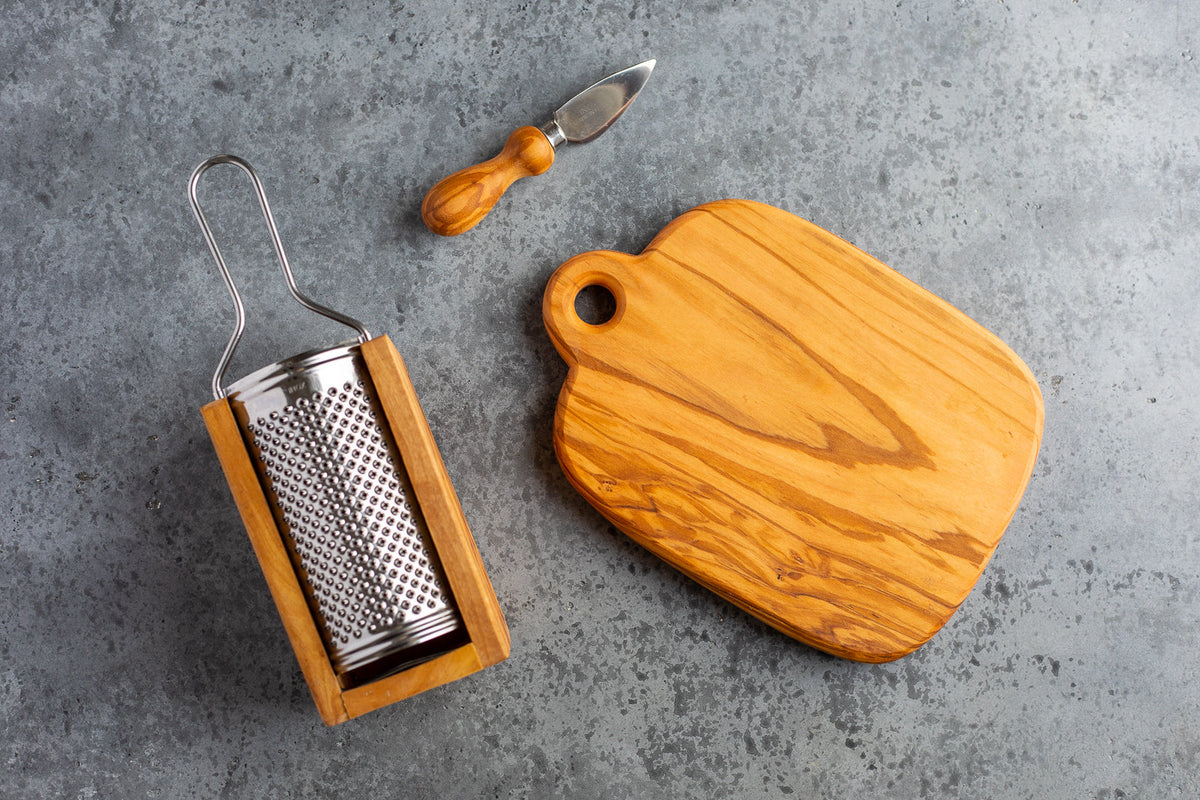
How to Care for Olive Wood
|
|
Time to read 2 min
qb Pasta Club doors are open Join by Feb 26 for special launch pricing.
|
|
Time to read 2 min
With its twisting knots and marble-like grain, it’s impossible not to love olive wood utensils . While we’re not for a cluttered kitchen (we know that counter space is precious when you’re turning out pasta dough on the regular), a statement olive wood piece is always a beautiful sight on any countertop, not to mention a sign of a lived-in Italian home.
L’ulivo, or olive tree, is found throughout the Italian peninsula from north to south, from the delicate Leccino variety of Tuscany to the spicy Tonda Iblea of Sicily. Cultivated in Italy since the 6th century B.C. by the Romans – who also created the first tools to press and extract the prized liquid gold from its branches – the olive tree has remained a symbol of peace and community, both in daily life and sacred rites. So if you find yourself charmed by these warm and twisty wood objects, we don’t blame you – they’ve got centuries of meaning behind them!
Here at q.b. cucina, we get our olive wood utensils from Arte Legno in Spello, Umbria, led by skilled craftsmen who have been turning this prized material into beautiful kitchen objects for two generations. With a reverence for their source material, each piece is carefully and skillfully crafted, and will last for centuries to come in your own kitchen with a bit of proper care and TLC.
Olive wood is naturally hard and dense, with a unique and shiny grain that makes each piece stand out on its own. While our olive wood utensils will arrive pre-seasoned to your door, you can give your pieces a refresh with food-safe mineral oil. You can also season all’Italiana with a bit of olive oil, as long as it is fresh (rancid oil does no favors for your tools, not to mention your food).
Take a clean, soft rag, or dish towel and place a small amount of oil on the towel. Then, rub the oiled towel in small circular motions all around the wood. Allow this to absorb, then repeat with a second coat. Set your pieces aside on the counter or another clean towel, and let the oil absorb completely before using your olive wood utensils.
Another reason to choose wood over plastic or other materials? It’s naturally antibacterial! This is great news when it comes to cleaning olive wood utensils. In fact, gentle cleaning is the name of the game.
First, a few don’ts: never soak your olive wood utensils in water, as this can lead to swelling of the wood and will result in cracks in the grain over time. Second, never, ever run them through the dishwasher. This is a surefire way to ruin your prized pieces.
Instead, use a soft sponge and a gentle detergent with a bit of warm water to clean heavily dirtied tools. Or, go natural – the Italian way! – with a sponge soaked in white vinegar to clean your ladles, spoons, and cutting boards.
Wipe your pieces dry with a clean towel, or if they’re not too wet, stand them upright in a well-aerated space to let them dry.
Want to keep your pieces looking just as beautiful as day one? Remember to re-season your olive wood about once a month. Simply follow the same process as the original seasoning, rubbing in circular movements with a bit of food-safe mineral oil on a clean rag.
Your prize? A stunning collection of olive wood utensils that will truly last a lifetime
